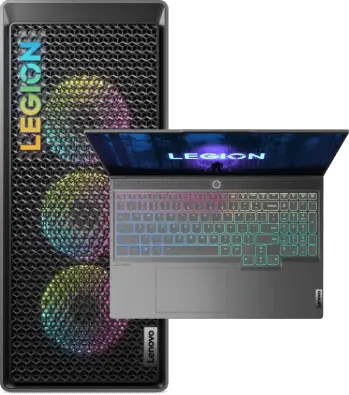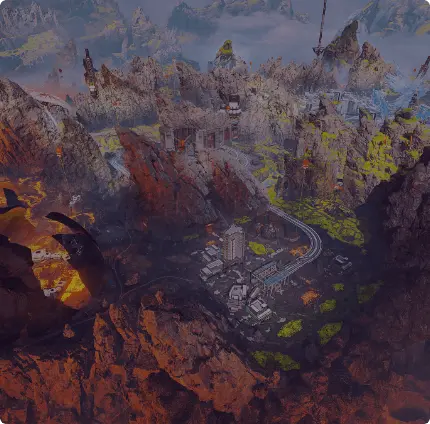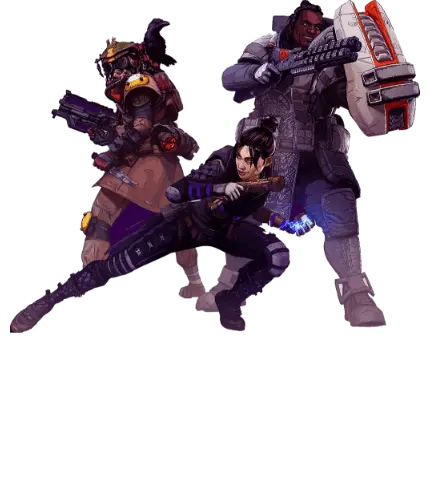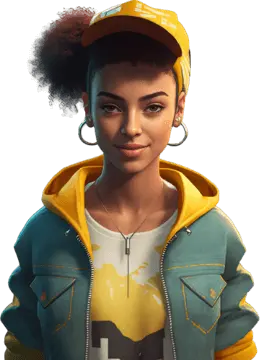Artificial intelligence (AI) has revolutionized numerous industries, including gaming. Compared to the early days of basic programmed opponents, today's advanced AI-driven characters and procedurally generated worlds show the huge impact AI has had—and continues to have-on gaming. And whether you're a casual player or a big-time competitor, you should understand how AI is shaping the action you enjoy on your gaming laptop or desktop.
In this article, we'll dig into the connection between AI and gaming, exploring its historical connections, current applications, and future possibilities. You'll discover how AI enhances gameplay, personalizes experiences, and even predicts your next move. Our goal is to help you better understand the incredible changes AI is bringing to the gaming industry and begin to explore the next developments on the horizon.
AI is a fast-moving topic; the connections between AI and gaming are sure to change and evolve. Any examples we provide of AI tools and methods used in specific games rely entirely on the manufacturers' own descriptions and are offered only to illustrate AI's potential capabilities.
The Connection between AI and Gaming
Artificial Intelligence (AI) and gaming have a fascinating and intertwined history. From the early days of simplistic computer opponents to today's sophisticated AI-driven characters, the evolution has been extraordinary. But why is AI so crucial to gaming? Simply put, while it's not used in every game, where it is used, AI pushes the boundaries of what's possible in game complexity and immersion.
When you think of AI in gaming, consider the NPCs (non-player characters) that exhibit human-like behavior. These aren't just random code scripts bouncing around; they're designed to offer you a challenging and immersive experience. By using algorithms that learn from player actions, these NPCs adapt, making games more dynamic and less predictable. Remember when you felt like the game was 'learning' your moves? That's AI at work. For example, in "The Last of Us Part II," the AI-driven enemies use sophisticated tactics, such as flanking and retreating, based on the player's actions.
AI also plays a role in procedural content generation. This is where entire game worlds are created algorithmically rather than manually by developers. Games like "Minecraft" and "No Man's Sky" use AI to generate endless landscapes and missions, offering you an ever-changing playground. It's as if the game has an infinite imagination, always ready to surprise you with something new. In "No Man's Sky," the game's universe is described as offering some 18 quintillion planets, each with unique ecosystems and terrains, all thanks to procedural content generation.
In addition, AI contributes to game balancing. Ever wondered how a game remains challenging yet fair? AI analyzes game-generated data points to tweak difficulty levels, ensuring you stay engaged without feeling frustrated. It's a delicate dance, and in a way, AI acts as a behind-the-scenes choreographer, constantly adjusting to keep you hooked. For example, in "Left 4 Dead," the built-in AI Director adjusts the intensity of the game in real-time based on the players' performance, creating what the manufacturer hopes will be a dynamic and balanced experience.
Overview of AI's Use in Gaming Today
In today's gaming world, AI is more pervasive than ever. From enhancing graphics to personalizing gameplay experiences, the applications are nearly everywhere.
One of the most significant advancements is in real-time strategy (RTS) games. AI algorithms manage complex scenarios, making real-time decisions that keep you on your toes. These systems can handle thousands of variables simultaneously, creating a more seamless, engaging experience. In games like "StarCraft II," AI is critical in providing a robust opponent who learns and adapts to your strategies. [In a different AI twist, Google's DeepMind even trained its AI, AlphaStar, to play "StarCraft II" at a professional level, demonstrating the potential of AI in complex game decision-making.
We're "all in" on AI, with a growing selection of Lenovo AI PCs offering personalized artificial intelligence solutions to make everyday tasks easier for business, learning, gaming and more. They're available with exclusive AI applications like Lenovo Learning Zone and Lenovo AI Now, helping lift computing to new levels. At Lenovo, our goal is delivering smarter AI for everyone, with tools that learn what you need, protect your work and data, and can grow along with you.
What's an AI PC? Quite simply, it's the future of computing. Someday, we'll just assume our PCs have built-in artificial intelligence. But until then, Lenovo is the place to shop for today's most advanced AI-enhanced laptops. And as you shop, be sure to check out models with the CoPilot+ PC label—a sign that the system offers both amazing AI capabilities and is built with the latest AI-boosting hardware, too.
In addition, AI is increasingly used to enhance the visual aspects of games. Through techniques like deep learning and neural networks, AI can upscale textures and images, making older games look newer. It's like giving your favorite classic game a high-definition makeover. And if you've ever marveled at the photorealistic graphics in recent titles, you can thank AI for that. NVIDIA's AI-based DLSS (Deep Learning Super Sampling) technology is widely acknowledged as improving in-game graphics performance and quality.
But it doesn't stop there. AI is also playing a role in personalizing gaming experiences. By analyzing your play style, preferences, and behavior, AI tailors the game content specifically for you. This could mean dynamically adjusting difficulty levels, curating in-game events, or even shaping the overall game narrative based on your decisions. For example, "Middle-earth: Shadow of Mordor" uses what it calls the Nemesis System, to remember your interactions with enemies, creating more personalized encounters–even rivalries.
Lastly, we should consider the rise of virtual reality (VR) and augmented reality (AR) games, where AI is at the core of creating immersive worlds that respond to your movements in real-time. Whether it's the way virtual characters interact with you or how environments change based on your actions, AI ensures that these experiences are as lifelike as possible. In "Half-Life: Alyx," for example, AI-driven characters and environments react dynamically to the player's actions, enhancing the sense of immersion.
How Will AI's Use in Gaming Evolve in the Future?
The future of AI in gaming is brimming with possibilities. As gaming technology continues to advance, the integration of AI in game development will only deepen, leading to innovations that we can barely imagine today.
Here's a glimpse into what the future might hold.
- Fully autonomous game design: Imagine a scenario where AI can design, develop, and release games with minimal human intervention. It's closer than you may think. It's been predicted that AI algorithms could soon be capable of crafting entire game narratives, generating complex worlds, and even creating lifelike characters without a single line of human-written code. OpenAI's popular GPT chat engines have already shown great potential in generating coherent and engaging text—hinting at their possible use for AI-driven storytelling in games.
- Hyper-personalized gaming experiences: With advancements in machine learning and data analytics, future games could adapt in real-time to your emotions, not just your actions with the controller. For instance, if the game detects that you're bored, it could introduce a surprising plot twist or ramp up the action, or if you're struggling, it might subtly lower the difficulty or offer helpful hints. Companies like Affectiva are said to already be working on emotion AI, which could be integrated into games.
- New multiplayer experiences: Until now, back-end matchmaking systems have been the typical method of pairing you with players of similar skill levels. But AI can delve deeper. It might consider your play style, preferences, and even psychological profile to find the perfect match, leading (hopefully) to more balanced and satisfying multiplayer sessions. Riot Games, for example, already uses AI-based matchmaking in "League of Legends" to create balanced teams and improve the overall player experience.
- Integration with emerging technologies: Current research into quantum computing and neural interfaces opens up a realm of possibilities for gaming. For example, quantum computing could exponentially increase the processing power available for AI algorithms, allowing for even more complex and realistic simulations. And neural interfaces could enable direct communication between your brain and the game. Not convinced? Think again. Elon Musk's Neuralink project is already working on high-bandwidth brain-machine interfaces.
Conclusion
We've outlined several areas where AI is already changing how we play video games. And the journey of AI in gaming is only beginning. From enhancing current gameplay to pioneering futuristic experiences, AI is expected to redefine what's possible on a gaming laptop.
So, the next time you boot up your favorite game, take a moment to appreciate the sophisticated AI that's at work, creating a rich, engaging, and ever-evolving experience. And then think about what's still to come. It's an exciting future.












